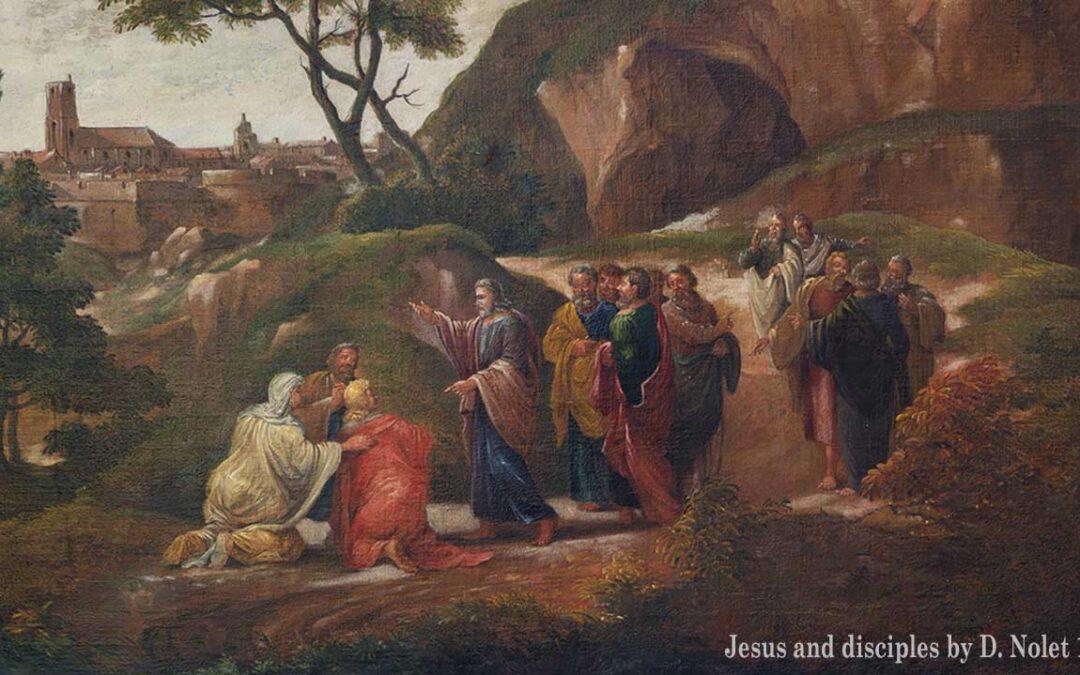Dear Friends,
You may recall that the gospel the last couple Sundays told the story of Jesus sending out the twelve disciples and then welcoming them back after they had gone out preaching, healing and bringing peace to those troubled by evil spirits.
How Jesus sent them out is fascinating to me because of the impact it had on the disciples themselves and the things we can learn from their experience in our own following of Jesus. They did not take any luggage or many tools or a developed strategy. They went out empty-handed, and because of this, they experienced the weaknesses and pains that affect human life. I think Jesus did this to transform the apostles into persons who are welcoming and hospitable to others in their own weakness so others can unburden themselves without fear. It is precisely their weakness that gives them the power to heal.
When the disciples return, Jesus offers them a period of rest and rejuvenation. In the disciple’s return, they are filled with energy and excitement because of all that happened, they want to share everything they have experienced with him.
That moment expresses a key idea for how we should be. For the Church is not primarily a group of people who look after others and do good to them. Rather, we gather around Jesus to draw from and share his life with everyone. The good that we do comes at Jesus’ command and with his aid. Without a constant return to the source, there is a risk of becoming self-absorbed, no longer bringing Jesus’ salvation but our own which is quite worthless. Then our mission would become fruitless.
Gathered around Jesus, the disciples share their experiences and recount what they have witnessed. This is a fundamental step of faith, as it involves reflecting on our experiences allowing the teachings of the Lord Jesus to illuminate those experiences. Some would argue that what we experience in life is not even real to ourselves until we share it with others. We come to understand our faith experiences by sharing them with people we trust, with other members of the Church, with our own small group.
Alongside that moment of reflection, there is a second one which seems to encounter some hindrances: Jesus invites his disciples to withdraw to a deserted area to rest for a while, but this does not happen, because so many people, sensing Jesus’ intentions, precede them and wait for them in the place where they were headed to find some rest.
Here is an interesting spiritual mystery: For Jesus, taking time to rest is a good thing, he does it himself and invites the disciples to do so. But what kind of rest is it? It is a rest that consists in rediscovering the significance of our choices and the profound unity of our existence, as only in this way can we truly find rest. Similar to what Jesus said to his disciples when they thought he should eat, he tells them he had a source not of this world. True rest is closely connected to compassion and love, not to the absence of work and toil. Loving others without limits does not take away energy but instead multiplies it and brings existence to its fullness. A great example of this was Mother Cabrini. Even though she was ill and struggled to breathe, she established 67 hospitals, orphanages, and other charitable institutions in her short life. God’s power was working through her. In the same way, God’s power can work through you.
During the next month, we will have a summer interlude from Mark’s Gospel and reflect on the Bread of Life Gospel from John. The Eucharist is one source of divine power for the work that Jesus calls us to do. The intimate connection with Jesus through the Eucharist gives us the power to “rest” through our exercise of compassion and love.
Peace,
Fr. Damian



